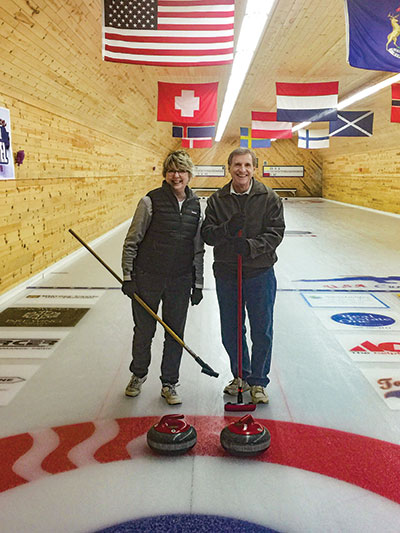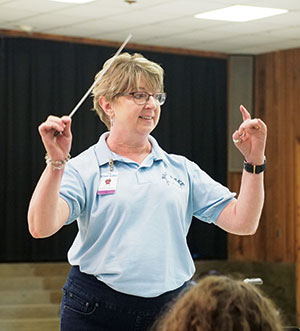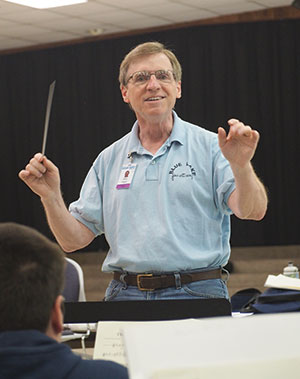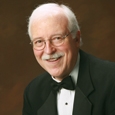Cindy Swan-Eagan and Mike Eagan have more than 75 years of teaching experience combined, much of it spent at small schools in Michigan. Cindy taught in the Manistee Public Schools, and Mike taught 30 miles up the road in Benzonia. Both Mike and Cindy have been named Michigan Band Teacher of the Year and are past presidents of the Michigan School Band and Orchestra Association. These days, although the Eagans have retired from their schools, they continue working with students and teachers in any way possible, including giving a packed presentation at the 2018 Midwest Clinic. Here is their advice to those teaching in a small school.

What are advantages of teaching in a small school?
Cindy: I controlled the entire program, which was wonderful because I could make long-range plans for students from their first day of band. The flip side of that was the responsibility of knowing how I wanted students to sound when they were seniors. If I didn’t like the results from feeder program, I had to talk to the person in the mirror.
Mike: You can build strong relationships with administrators in a small school, and being able to walk into an administrator’s office and discuss an idea is nice. I worked in some big school systems where a teacher might never meet the superintendent.
Larger suburbs can also be prone to people moving in and out quickly, but many small towns are fairly stable. People have been there for generations. That surprised me when I went to Benzie Central, which was the first small school that I ever worked at. People were still bragging about playing in Calvin Whitmore’s Band back in the early 1960s.
Cindy: I agree. In doing some research on the history of the school where I taught for 34 years, I learned that with the exception of a couple directors who only stayed briefly, the school had only had two other long-time directors before me. That is a tremendous legacy. There were several people who shared their pride at playing in a previous director’s band. People are remembered in small communities.
Mike: Having a junior high and senior high under the same roof was a terrific advantage. Some years I had a high school student as a permanent teacher’s assistant in the junior high classroom. Other times I assigned older students to lead sectional rehearsals. This gave older students ownership of the program and made the younger ones look forward to the day that they would get to help out.
Why is it important to build systems?
Cindy: If we do and say the same things in the same way every time, the older students take part in continuing that legacy. They are confident that the routine is going to be the same, and you know that they are going to share the right information with younger students in the right way.
Mike: Only do what only you can do. It pays dividends for students to know the routine for such events as parades and concerts. One year we had a long series of snow days right before a winter concert. School was cancelled the day of the concert as well, but the weather was going to be fine from the afternoon on, so we did not cancel the concert, even though we hadn’t been in school for a week. A bunch of students showed up and set up the stage with no instruction from me. They had everything ready to go, including all of the peripheral things you might forget. The same is true at festivals. The older students know where to put cases and where we sit in the auditorium because we tended to do the same thing each time.
What are your thoughts on small bands trying to sound like big bands?
Cindy: A hundred students will never sound like 22. Twenty-two students, each with great tone, will, when playing together, have a crystal clear, beautiful sound. If 22 try to sound like 100, the sound will seem forced and overblown. Don’t force a big sound. Develop the sound your students produce.
How do you adapt to incomplete instrumentation?
Mike: Go back to the score. It is easier when you have an old-style condensed score to look at all the chord tones; then you can make sure all of the chord tones are covered.
Cindy: I’ve been shocked over the years listening to groups playing. If they didn’t have a specific part but the countermelody was in that part, sometimes they just left it out. Rewrite those lines and give them to as similar of an instrument as you can. Even if it is impossible to get a similar tone quality, make sure that line is covered. The composer had a reason to include it; make sure the choice is honored as well as instrumentation permits.
Mike: Sometimes you don’t even have the luxury of a similar instrument. I once had a tiny middle school band with no trombones, and we were playing a Clare Grundman piece that called for trombones playing offbeats. We used a xylophone to cover them. If you have the instrumentation then play it the way it’s written. If you don’t have the instrumentation then just get it covered one way or another. The kids enjoy doing things like that, and quite frankly, even within a perfectly balanced band you will still have to rescore things, because every band has slightly different instrumentation.
Cindy: Every band also has different strengths and weaknesses. If a melody, harmony, or countermelody line is in a weaker section, add other instruments to that line to help players feel secure and make sure the part is heard.
Mike: If you have a weak trombone section and saxophones to spare, give one alto sax player a trombone part to cover. It helps the trombone part project, and a line that could be tricky for a trombonist is likely to be easy for a saxophonist.
Do you have any strategies for approaching mixed-instrument beginning classes?
Cindy: For band, we always started with the student learning how to open the case. They were taught not to walk around with their instruments out. We needed order in the classroom before we could start to learn to make music; this is the first step in building a system.
At a clinic session by Lloyd Whitehead we got the idea to put brass players in front of the clarinets, because clarinet players tend to sound good quickly, but brass players might struggle matching pitch. This gives the brass a strong sound behind them to match and speeds up their development. We also put flute players in the back row, so we could easily get to them to correct posture.
Mike: Mixed-instrument beginner classes are also a good chance to renew your skills on each instrument. One day I might play along with the band on flute; the next day I would play trombone or percussion. It also gives you empathy for how beginners feel learning an instrument.
Cindy: Students eventually find out that I play the bassoon, and they want to hear it. Once beginners are playing pretty well, I bring it to band and demonstrate for them. It is a great opportunity to get some students interested in playing specialty instruments. It was always fun to pull a tuba out and see them turn around and say ooh.
Mike: We rarely had a hard time getting students to switch to some of the big or the little-but-harder-to-play instruments because they heard us play them. It also gives us an air of legitimacy in the room. It shows students that we are teaching things that we are competent in.
For a number of years I had beginner band in a regular classroom, but there were no chairs assigned to the room. The 50-60 students in this class had to bring a chair for band every day. One might expect a nightmare of daily chaos, but it turned out to be a great blessing to me because those students learned early on how to set a band up. Throughout their middle and high school years we could go anywhere and wouldn’t need stage crew volunteers.
What is the first instrument would you buy for a small program?
Cindy: My first job was in the Upper Peninsula of Michigan, leading a band program that had been in existence for only three years. I brought in a long-time educator I trusted and admired to listen to a concert and offer advice. When I asked him what was the next step in my program’s development was, he said I needed to buy an Eb contra-alto clarinet. This seemed like a frivolous purchase, but he explained that I could give it – and the tuba part – to a clarinet player, and the band would have an instant tuba. If you buy a tuba first, you have to train a tuba player, so make a tuba your second purchase. It worked, and in later years when we had full instrumentation, the contra continued to add richness and depth of sound to the ensemble. A contra-alto clarinet also adds a richness to the woodwind sound that I don’t think you can get any other way.
Mike: To add a bass sound to a little band that has nothing lower than a tenor instrument, makes a huge difference. If the contra player is shaky about the transposition, sit him next to the alto sax players and have him check the key signature off their music until he feels secure. When you add a tuba and convert another student to play it, sit the tuba player by the contra-alto clarinet player so the tubist can hear the right notes.
How can older students help the music program?
Cindy: In a 9-12 group with students at multiple ability levels, older students can run sectionals. This is an excellent talking point with anyone who wonders why a student should spend all four high school years in music. Four years of band does not mean repeating the same thing four times, especially not when older students can serve as leaders. I would give student sectional coaches a section of the music that needed work, tell them what I wanted them to accomplish, and send them off to the practice room, which is a luxury I was lucky enough to have. Before we had practice rooms, we used hallways or a vacant classroom.
Mike: We also put students in charge of the uniform room. I always told students, “I don’t even walk in there without permission of our uniform chairperson for that year.” In fact, there was this one girl who was so dedicated that I bought her a little plastic sheriff’s badge. She wore that sheriff’s badge anytime she was in that uniform room.
Cindy: Music librarian is another good position to have. People might not think of this as a great opportunity for students to take leadership, because anyone can put music back in score order and file it. However, it is important to remember that music teachers should only do what only they can do.
Mike: Consider having students learn instrument maintenance. We always found a student or two who enjoyed it. They learned how to replace parts on a drum, and some even learned to change out parts on a trumpet valve or a horn. Then, they passed that knowledge on to other students. Once you get that going, you don’t have to train anyone else to do it. Students who like doing those things will emerge.
Cindy: Sometimes students get to be in the 11th and 12th grade but are still in the third clarinet section. These students should be given leadership roles as well.
Mike: Sometimes those students are my better teaching assistants with the younger groups, because they had to work to understand playing concepts when they were younger. They can be a bigger help than the student who shot straight to the top.
Cindy: Mike had students read program notes at concerts, and over the years he would ask a few to write program notes in the style he used. Reading program notes is a great task for debate team students; it gives them an opportunity to shine.
Mike: The first time I asked a student to read program notes at a concert was after I watched a band student at a spelling bee. She spoke so clearly and eloquently that I thought she would be a terrific program announcer. From then on I always had students do that. It’s a great thing because it gives you a little bit of down time on stage.
In small schools, it is common to have students involved in multiple activities. Has this created any challenges?
Mike: In a small school, students don’t have to choose a primary activity. It is nice to be able to play bassoon, run track, and play basketball. Teachers in small schools need empathy for these students’ interests rather than demanding they put band ahead of anything else.
This falls under building traditions and sticking with programs. You have to sit down with the athletic director the year before and hammer out a schedule for all events, with the understanding there will be some compromise on everyone’s part. A good working relationship with the athletic director and anyone else scheduling events around the school makes the process easier.
The flip side of this is that you cannot arbitrarily schedule extra rehearsals outside of school hours. You have to figure out what can be accomplished in 50 minutes a day. If we ran out of time, we planned poorly. In addition, my school covered a huge geographic attendance area, and for someone to come in after hours it might be quite a drive. This is to say nothing of Michigan’s winter weather.
Cindy: Another advantage is the opportunity to celebrate students’ other activities and interests. In my spring concert every year I asked student athletes to stand and be recognized and did the same for forensics, debate, and drama students, as well as those who make the honor roll. It gave me an opportunity to say publicly that these students are becoming well-rounded, well-versed young adults through the opportunities that they have in this school.
You said that in their first year, students are taking band or orchestra, but after that they’re taking you. What does that mean?
Mike: You are the curriculum and the class. You keep students coming back year after year. This is even more critical in a small school, where you might be the only music teacher students see from beginning band to high school graduation. It is humbling that a child would sign up for your class for seven or eight years, knowing that along the way they will have to make some hard decisions about class schedules.
We were careful never to waste their time in class. The second that students get bored with band, whether from a perception that the band director will talk for most of rehearsal or not much will get done because the director only works on one thing per day, they will be ready to try something else. Even where there are different directors at middle and high schools, you have to provide students with something of value, and one of the most important things you can provide is the sense of not having wasted their time.
Cindy: It comes back to building systems. When students sign up for your class, it is because they believe you are giving them something valuable. Having those systems in place lends consistency and predictability. Students know what they are going to get, and they know it is valuable.
Mike: That is often lost when people take a new job. If you replace someone who has been there for many years, the music students you inherit have been taking that director all those years, not just orchestra, band, or choir. A wise person coming into a new job will look at those systems and will do as much similar as they can possibly do that first year. This is how to keep most of the students in the program. It is always sad for me to hear someone say, “I just got a new job, and I have to change a lot of things.” These teachers are going to have a really rough few years before students under the previous director age out, and they might not last long enough.
You have said, “cut your checks on Thursday.” What does that mean?
Mike: That was from my school’s secretary. She wrote any checks that needed to be sent out on Thursdays. If you needed a check on Friday, you had to wait until next week, because she writes checks on Thursday. She got a lot more done by designating specific days of the week for certain tasks, so we implemented that in the band room.
Cindy: Once the schedule was established, it freed up a great deal of time. For example, in rural schools, a music store representative might stop by once a week, coming to my school on Thursday and Mike’s school on Friday. I started accepting supply orders only on Wednesday, because dealing with it every day ate into rehearsal time.
Mike: When you are the only director, you cannot spend all your time torn between helping someone with a uniform, talking about something out in the stage area, or dealing with the set up of a gym, especially on the day of a performance. I give pre-concert deadlines for such problems as questions about uniforms and ordering new reeds. If the mundane stuff is handled, then you have time to deal with a real emergency when it happens.
How can the lone music teacher in a school or district avoid feeling isolated?
Mike: We always encourage people to get involved in state associations and to take an office whenever you can. This way, you are not only giving something back to the whole profession, but you are earning in a lot of friends in a wider geographic area. Both Cindy and I eventually worked our way up to being the state president of the Michigan School Band and Orchestra Association. We had friends all over the state.
I had no jazz experience, but in my last 10 years teaching, we added a jazz band to the school curriculum. Because I knew the vice president of jazz activities in MSBOA, I had someone who could answer all of my questions.
Getting to know people helped me a lot. There are many retired teachers willing to help. I am not just talking about coming into the band room and sitting down. I mean sitting down on the telephone, email, or even getting together for a visit one evening and just talking about how things can work, and how you can make things happen. There is a wealth of information available to anyone who asks.
Cindy: Social media can be a wealth of information. If you search, you can find conversations similar to the kind you might have in a discussion table around a meal, a conference, or in an advanced degree program. I looked for the people who were already doing things the way I wanted to do them, and I came to them with my questions.
How do you win the support of the community?
Mike: Community presence is important in a small town. You need to show up to your students’ softball games and county fair animal exhibits. You also need to be a courteous driver because people will comment that they saw you driving down the street.
Make your large purchases in town. Cindy and I taught in different towns, so we had to pick one to live in. Because we lived in Manistee, where Cindy taught, we bought cars in Benzonia, where I taught. We bought Jeeps because that was what was available to buy. Little things like that make a big difference. We bought from the local shops. That community presence goes further than you could imagine, because the school board members get to know you. Chances are that the person who owns the town grocery store is on the school board, and because you supported them, they are more likely to support you and your students.
How do you unwind when you are handling everything?
Cindy: When you are the only music teacher, it might seem like the work is insurmountable. Schedule down time, do not merely hope to find some. We made buttons that say BFW (band-free weekend) with a red circle with a line going through it. We didn’t talk about work at all on those weekends. We took time for the family and ourselves. No one can be a one-person show for long without a break. Schedule something fun for yourself.


.






